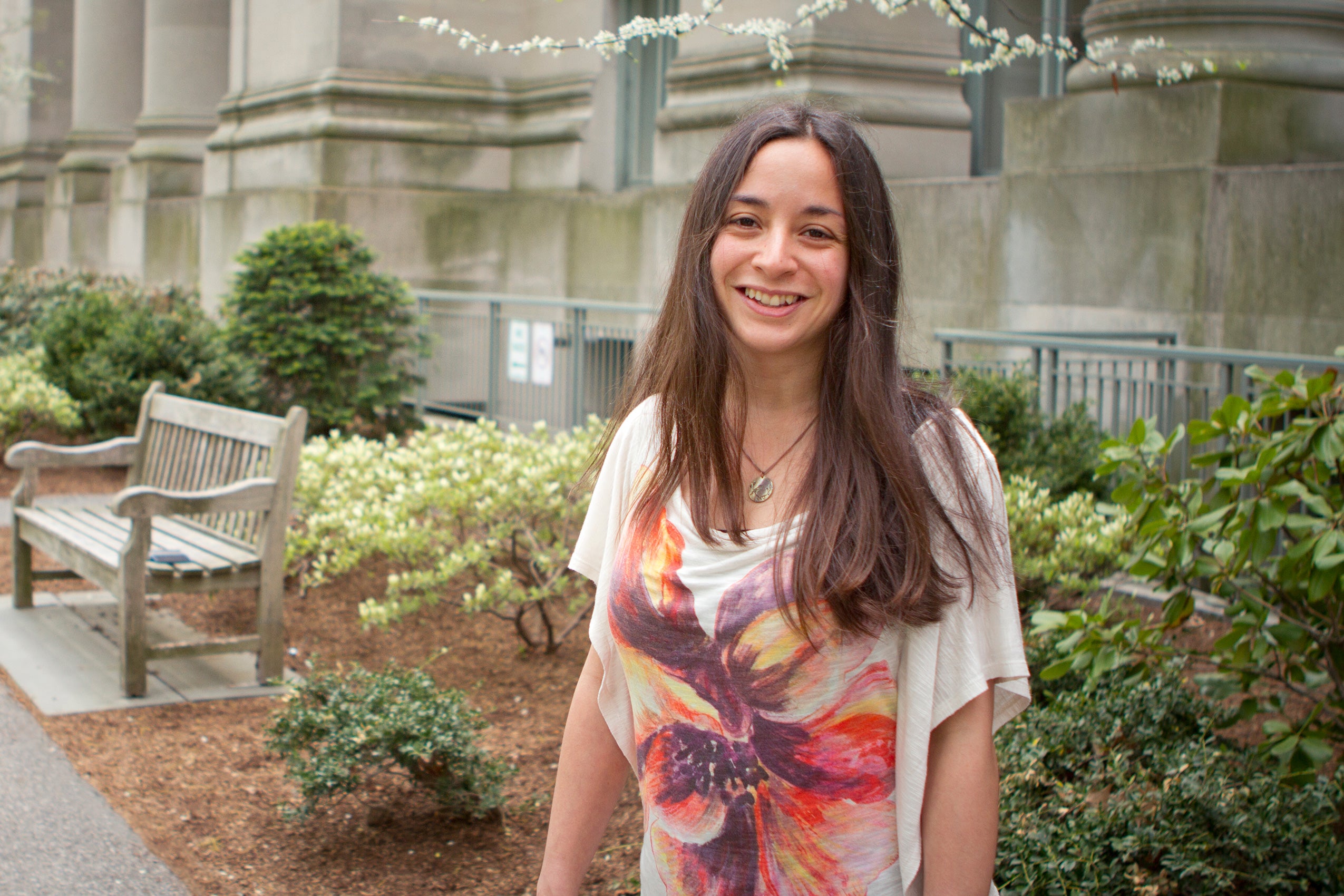At a time when right-to-work laws, which severely threaten the viability of workers’ unions, seem to be gaining in popularity, Antonia Domingo ’15 is something of a rare creature: a fervently pro-union loyalist. Her faith in unions traces back to her childhood in Indiana. In fifth grade, Domingo’s elementary school teachers went on strike. Every day before she headed to work, Domingo’s mother would join the picket line. “Seeing that was very meaningful,” Domingo said. “That solidarity between people who were in my life every day, my teachers and my family, made an impression on me.”
Domingo, who will be working for the United Steelworkers union in Pittsburgh upon graduation, came to Harvard with a dedication to social justice that shaped each choice she made along the way to law school, from volunteering at a workers’ collaborative center in Argentina while learning Spanish for a year after college, to working for two years in a domestic violence shelter in South Bend, Indiana, as a bilingual advocate. Eventually, however, she settled on labor and employment rights as the issues that brought everything together. “Something just seemed very fundamental about having access to jobs that provide a living wage, that treat people with dignity at work,” Domingo said. “And I was always impressed by the collective action component that I had seen in workers’ movements.”
At Harvard, Domingo quickly sought ways to connect to the broader community. In her first year, she began canvassing foreclosed homes with Project No One Leaves, a student group that educates homeowners and tenants about their legal rights. For Domingo, it was a way to escape Cambridge and connect with Boston’s gentrifying communities. Domingo also helped revitalize the Labor and Employment Action Project, a small group of students dedicated to workers’ rights. LEAP, along with other student groups, has organized student delegations to support Harvard dining service workers and, during Boston’s snowiest winter on record and after numerous school closures, amassed hundreds of student and faculty signatures for thank you cards to the Harvard staff who had kept the school running.
In addition, Domingo has served as a student attorney with the Harvard Legal Aid Bureau, where she has worked on family law, social security, wage-and-hour and unemployment cases. At an end-of-year dinner honoring HLAB students who were graduating, Domingo was voted “most likely to cover your office hours with a smile,” which fellow HLAB member Donna Harati ’15 said was perfectly emblematic of Domingo’s dedication to her friends and colleagues.
Harati described Domingo as a “quiet leader” who “takes on a lot of work and doesn’t draw a lot of attention to herself in doing it.” Instead, Domingo is quick to focus on her clients and the workers she seeks to represent. Rather than heedlessly jump at the opportunity to advocate for swift change, Harati said, Domingo will take the time to meet with workers, union leaders, and others who could be impacted by changes to law or policy to really listen to their concerns. “She always brings a lens of asking, how are workers going to be affected by this?” Harati said. “She really understands the need to respect workers and the decisions that they make.”
Domingo plans to bring that lens to United Steelworkers, a union that focuses both on traditional representation of its members as well as newer forms of organizing, such as working with adjunct professors, supporting a campaign for carwash workers in Los Angeles, and engaging in international work to connect union members worldwide. “I don’t know how this happened – I just got my dream job,” Domingo said. “I get to work directly with members and be involved in a larger movement that I care deeply about. I have a really hard time wrapping my mind around it.”
